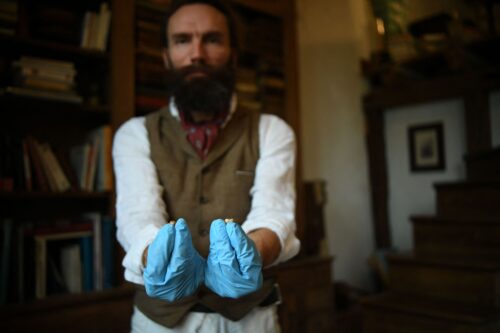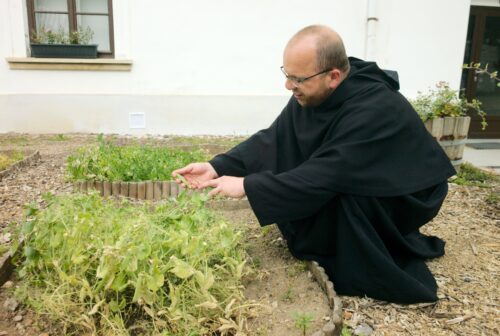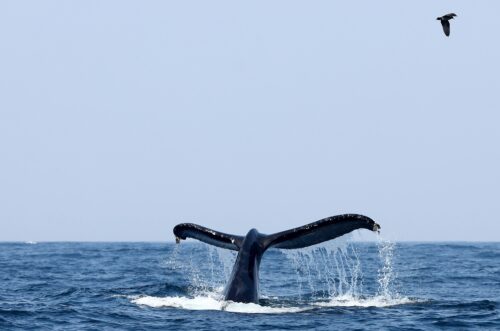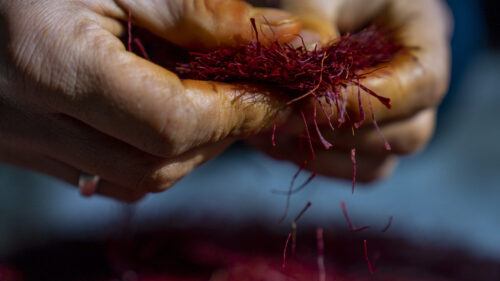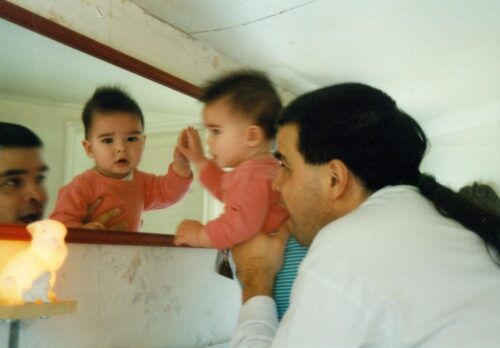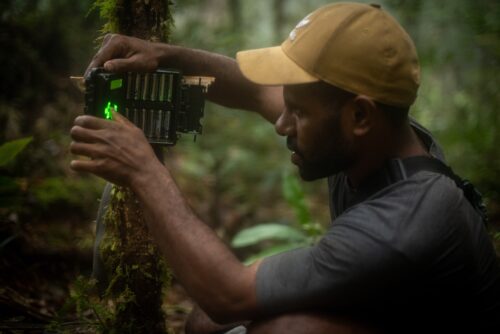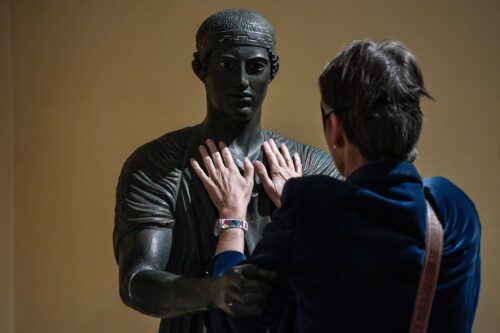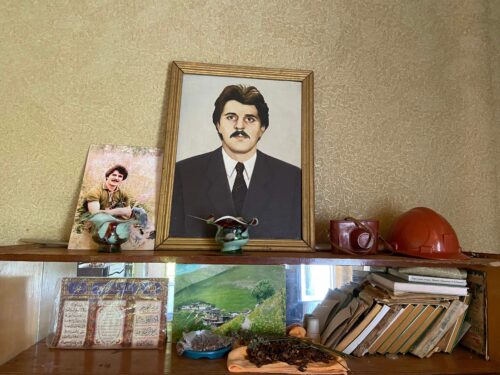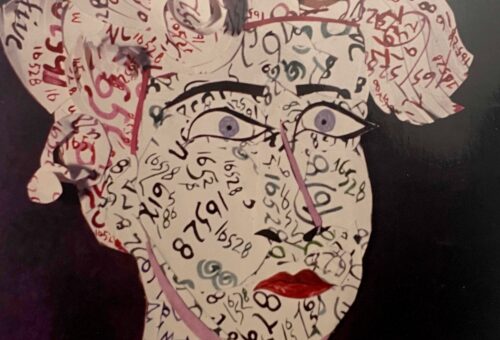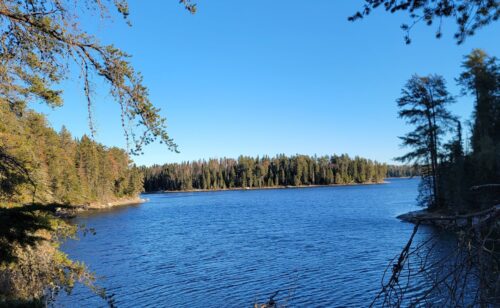Window
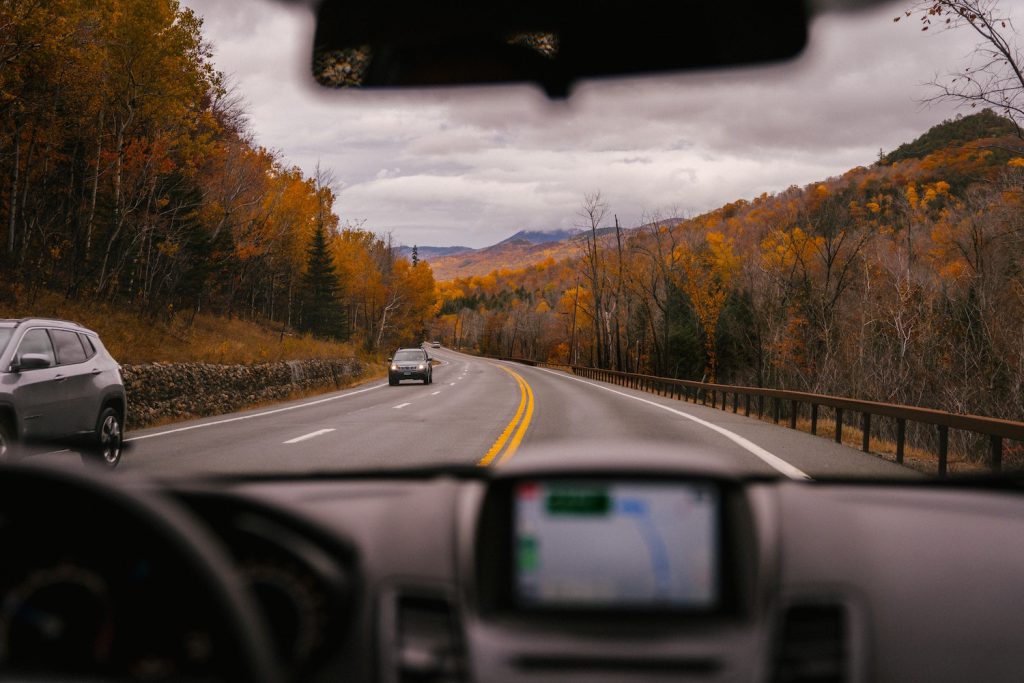
“Window” is part of the collection Lead Me to Life: Voices of the African Diaspora. Read the introduction to the collection here.
I.
Finding myself
lost in the woods
thick with trees
so stoic they appear to be standing
just beyond the cliff face,
each with its own name
and stories kept safe
in its branches.
Each time I am running
from something. A fleeting
thought of me fleeing
into a brown forest
under canopy. Same stag
catches my gaze, even
the blue jay’s song
is familiar and it is midday.
And I am running,
running fast enough to stumble,
glancing back, grunting,
reaching forward
into the unforeseen.
II.
Men like me have run
among these trees
for centuries. The intimacy
of shared hiding spaces,
pathways among the brush
worn away, even shadows
appear then reappear like
birds taking to the sky.
But birds don’t run
like that—
they don’t move like the blues
sung from swollen lips.
Incessant hounds barking
in the distance,
a sound as clear as her
inquiry if I am even listening
is finally heard. Looking
from the passenger side to my beloved,
to whom I reply that I am.
III.
We were headed north.
The sun setting
on where we’d been,
with so many miles
yet to go, so many trees,
and it was autumn.
One couldn’t help but notice
some changing, the fallen
laid out over the thicket
hidden in afternoon shadow.
Stretched out like something
cut down, the forest
already filling its cavities.
Quietly, we rode for
a moment until the
silence was broken,
“You OK?” looking
out of the window
at the passing forests,
it’s just this daydream
I keep having.
IV.
In a split second,
someone’s whole life
plays as if on a screen.
They look like pictures
in history books, in motion
captured in the heat of escape,
mouths agape, muscles tense,
clothing torn. And I wonder
if these dreams are mine at all
because they are from a different
time, one I don’t belong in and yet,
I recognize those eyes.
And that’s the scary part. To look
at him is to see myself
running, always running, trying to keep pace.
V.
Race. Who tells the story
of the ones who don’t make it,
those left in the field carrying
the weight. How heavy are
the medals worn by those left
behind whose legs are led
still trying to move the head—
vying to look up to see the clouds
move like birds do, in and out
from around trees.
Eventually, there will be nowhere
to run. And someone will need
to look back and see
how far we’ve come,
plant seeds in the hiding spaces.
There may even come a time
when a forest will only be trees.
But for now, it’s the setting for a memory
not mine, but ours. Like a relative
lost in the brush, or a child,
like a tree that falls and no one hears.
